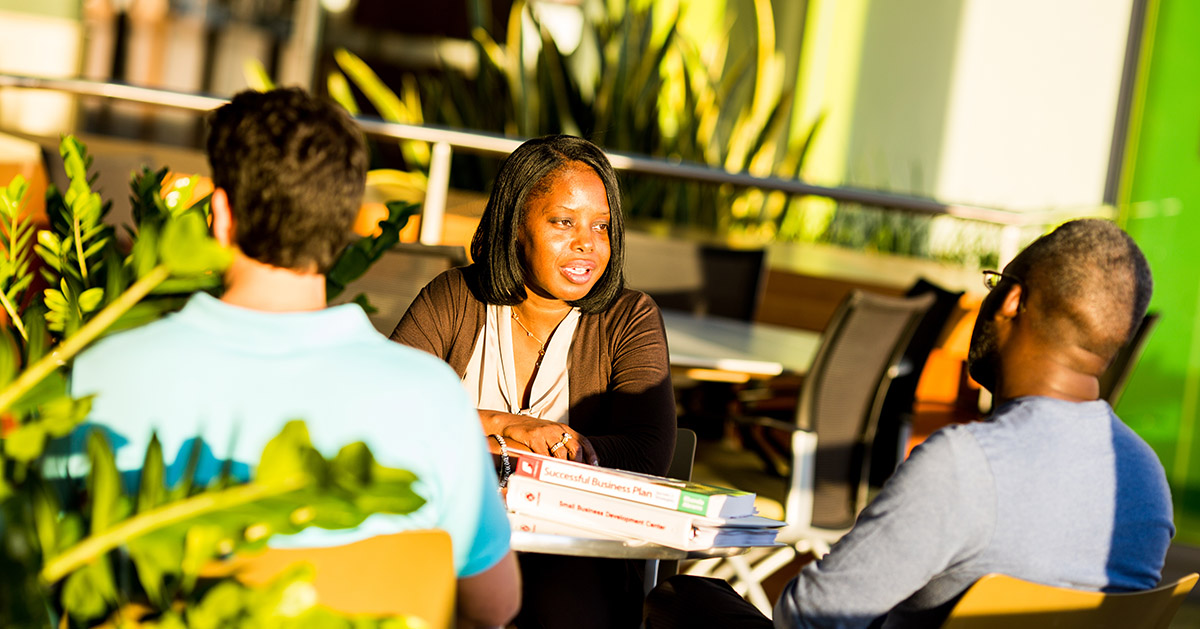As the UpStart program celebrates 10 years, its founders and participants look back on how it all began and why it continues to redefine what successful entrepreneurship looks like.
When the crowd gathers in the H.F. DeLuca Forum at the Discovery Building this fall for the UpStart dinner — an annual gathering that grows every year — they’ll find many familiar faces in attendance. Perhaps they’ll see Urban League of Greater Madison CEO Dr. Ruben Anthony, or Madison Black Chamber of Commerce president Camille Carter — both graduates of the free, intensive, top-tier, several-week entrepreneurial program for women and people of color. Maybe they’ll spot Sabrina Madison, founder of The Progress Center for Black Women, or Dr. Roxie Hentz, president of CEOs of Tomorrow — alumnae whose own entrepreneurship grew into developing future entrepreneurs. They might see alumni whose businesses have only grown, like James Bloodsaw Jr., whose JustVeggiez vegan eatery was named an SBA Wisconsin 2023 National Small Business Week Award winner. Even more likely, they’ll see that fellow cohort member who went through UpStart only to determine that their business idea was not the right one for now — which is considered just as much of a success story as any other.
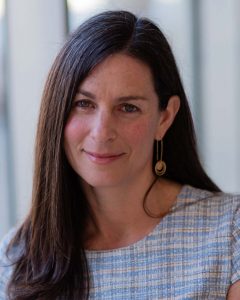
“Obviously we want people to be successful and we want their businesses to thrive,” says Katie Rice, UpStart’s director since 2016. “But really our goal is to educate them on what it takes to launch and grow a business, and vet an idea from the beginning. To make decisions based on information, rather than fear.”
Since its pilot program launched in 2013 as a joint venture between the Wisconsin Alumni Research Association (WARF) and the City of Madison Department of Civil Rights, UpStart has welcomed 19 cohorts of 449 participants — 82% of them female and 53% Black, key demographics facing widely documented systemic barriers to entrepreneurship. UpStart has evolved over the past decade in ways it couldn’t have anticipated in the beginning, shaped by the entrepreneurs themselves while also adapting to unexpected events, like creating a virtual curriculum in response to a global pandemic. Recent additions include developing a coaching pilot program in partnership with UW–Madison’s Certified Professional Coach Program, an innovative advertising partnership with Edible Madison Magazine, and “Taste of UpStart” gift boxes that highlight products from alumni. But it’s the core values and foundational basics of a curriculum, developed in partnership with the Small Business Development Center (SBDC), that have proven the most powerful over the years — and those have been there from the start.
“It really started with this idea that things like intellectual property, business ideas, business acumen are not the sole monopoly of any particular group,” says Department of Civil Rights leader Norm Davis. “That if provided with training, resources and networks, anyone in our community could really thrive in their business.”
INTENTIONAL BEGINNINGS
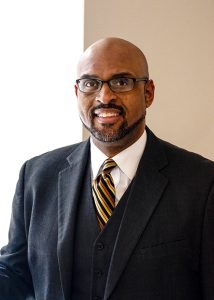
UpStart was born out of the mission to provide education and access, similar to the intent behind the creation of the Discovery Building — to provide a place that would bridge campus and the wider community, especially for people who might not have found access before. These objectives stem from the Wisconsin Idea, the general principle that education should influence people’s lives beyond the boundaries of the classroom.
“WARF and the Department of Civil Rights wanted to cultivate and strengthen a more diverse entrepreneurial ecosystem in the city of Madison and the larger state of Wisconsin,” Rice says, “so what better place to hold this class than a place intended to be at the apex of the community and campus, the Discovery Building?”
Zach Ellis came to work for WARF in 2011, just before the Discovery Building was built. As a person of color with a strong entrepreneurial background, he was intrigued by the conversations underway about how WARF could move beyond just supporting the university to ensure the Discovery Building served as a welcoming place for everyone. He became the first director of UpStart, curating a 12-person pilot cohort by reaching out to places like Umoja Magazine, the Latino Chamber of Commerce and the Black Chamber of Commerce.
“There was a lot of intentional effort put into making that first cohort really engaged, really sort of handpicked, to give them a white glove experience so that they could then turn around and be advocates for the program,” Ellis says. That awareness that the ecosystem they envisioned would ideally build on itself drove many decisions in the beginning about how to roll out the welcome mat. Founders accounted for things like validated parking and catered dinner, because classes were held in the evenings after participants had already worked long days and often had family at home, or second jobs.
Right away, the program flourished and the need was clear. The second cohort doubled and there were more applicants than available spots — a situation that continues to this day — as organizers prioritized keeping cohort size small enough to give participants intense personalized instruction. Most importantly, UpStart organizers worked to demystify and redefine successful entrepreneurship. They were clear that the program’s success would be measured by education, access and networking instead of typical metrics like whether a business launches or gets funded.
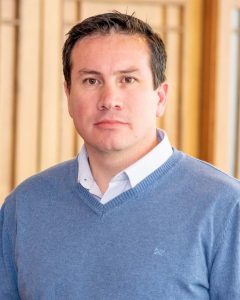
“It’s a win for us not just to have companies created, but also to realize that’s potentially not a good business idea,” says Rafael Diaz, who took over for Ellis as director in 2014. Like Ellis, Diaz was immediately drawn to the idea that UpStart could help people understand that the university and the Discovery Building were here for everyone. As he worked to communicate this to applicants, he could see how surprised they were. “We were saying, ‘This is here for you, this is a public university,’ and people said, ‘What?’” Diaz recalls, adding that teaching business acumen is a huge value to people who might not readily access it, but ensuring the Wisconsin Idea is carried out in practice benefits everyone.
“People are proud of being part of UpStart,” Diaz says. “Having access, having the possibility to have these resources, it’s very powerful.”
SUCCESS IN REAL TIME
UpStart’s top-tier curriculum was developed by the SBDC’s Michelle Somes-Booher. It covers a range of core basics such as business planning, financial readiness and marketing strategies.
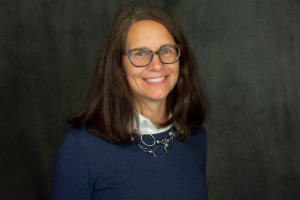
“We meet people where they’re at,” Somes-Booher says. “If you just want to learn some principles of best practices, this class is appropriate. If you’ve tested your idea already and are figuring out how to scale larger, this class is still appropriate.”
Most importantly, Somes-Booher says, UpStart provides participants with a network of resources. “One of the cool things about UpStart is that once you’re done, you’re not done,” she says.
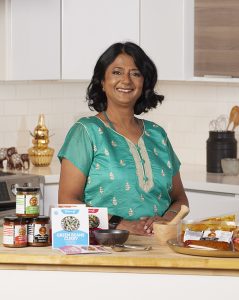
That network has been the greatest takeaway for Sara Parthasarathy of Flavor Temptations, a company she started as a side project while still working a corporate job. Her fledgling business was offering two or three spice kits when she enrolled in the first-ever UpStart cohort in 2013. “I think UpStart was one of the very first things that really helped me connect with all of the people that have been helping me with my business all along,” says Parthasarathy, who now has more than a dozen spice kits available online and in area grocery stores. “What I learned is that it was much bigger than just creating a product.”
Parthasarathy soaked up skills like a sponge, absorbing financial awareness that empowered her as she approached banks for funding. She also met the person who became her mentor and discovered the Doyenne Group network. And she still uses the curriculum’s Business Model Canvas — a more accessible, practical alternative to a formal business plan — some 10 years later. “It’s always been a good tool for me,” she says. “I just take it out and say, ‘OK, things have changed, I have a new target customer, how does this impact the rest?’”
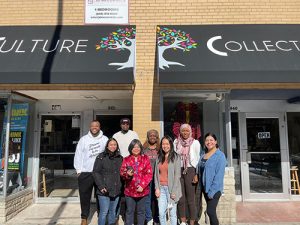
Saran Ouk also found the Business Model Canvas to be one of the most beneficial tools of the UpStart program, particularly because she ended up vetting several ideas. Ouk was working full-time at a credit union and had started a nonprofit professional development program for young adults (ConNEXTions) when she came into the 2018 fall cohort of UpStart to pursue a third idea. Not only did the business planning tool help her vet that idea and strengthen her existing nonprofit, things took a twist during her program: As her classmates voiced concern during the financial curriculum about their personal situations, Ouk found herself drawing on her own professional skills to help them — which led to her developing a fourth idea to provide personal financial consulting that became a business, Dream Bigger. Ouk had to shutter Dream Bigger when she took a job providing a similar service with the city of Madison’s economic development division, but still credits UpStart for making business planning less intimidating for the populations she works with. “I think the myth is that you have to have this full-blown business plan and then people freak out because they don’t have one,” Ouk says. “But UpStart shows you can get started with a smaller version and then you gain the confidence of writing a full-blown plan if you need it.”
CONFIDENCE BOOSTER
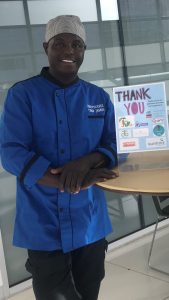
Gaining confidence was one of the key takeaways for James Bloodsaw, who describes himself as shy. After starting JustVeggiez in 2018, he’d enrolled in the first business classes of his life, including UpStart. “I’d been cooking for like 30 years, so I knew the cooking part, but I didn’t know anything about the business part,” he says. That he could use the law library to gain free access to targeted demographics blew his mind, but he also needed the paradigm shift that required embracing self-promotion to make that marketing stick, an UpStart lesson he vividly remembers. “I learned I had to become a salesman, because who else was going to sell the business for me?” he says. “I use that all the time now, if I get an interview or anything. You have to be able to get the word out about your business, so you have to sell yourself.” Five years later, Bloodsaw says, he’s still drawing on the program. “I email Katie Rice all the time, or ask questions in the UpStart Facebook group, or just look through the binder we got,” he says. “Anyone who is trying to start up a business needs to go through this program, that’s my thing. It’s a mandatory program.”
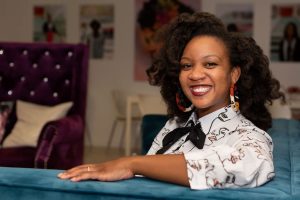
That confidence also proved revolutionary for Keena Atkinson. She was working in corporate America but couldn’t stop dreaming of this idea to start her own business, so she entered UpStart in 2018 — but not without reservations. She’d also taken Wisconsin Women’s Business Initiative Corporation (WWBIC) classes and worried she’d already had her chance. “In my own limiting belief, I thought that since I’d taken one business class and graduated from it, I should not take up space in another business class,” Atkinson says. “I was attracted to learning but I didn’t feel worthy.” Of all the skills, tools and networking resources Atkinson gleaned from UpStart, it was that — becoming aware of her limiting beliefs and gaining the confidence to take up space — that had the biggest impact, even when her original business idea didn’t pan out. After vetting it thoroughly in the program, she ended up starting a different company, R’oujie Wellness, teaching yoga and dance classes virtually. She returned to UpStart resources during the pandemic and came through it thriving — now she has a national audience. “To this day I can say word for word the things that they said in class that they taught me, kept me lifted, and motivated and encouraged me to be brave and courageous when doing things for my business,” she says. “I graduated in 2018 and I’m still reaching for UpStart, still connecting with them.”
Those connections — or, as Katie Rice calls them, “collaborations and collisions” — are what the UpStart program is all about. That’s why the annual dinner — which this year will bring 20 cohorts into one giant, thriving, evolving ecosystem — is so important. Past year’s events have even led to new ventures.
“UpStart is all about building a supportive and sustainable community of partners,” says Rice. “We’re proud to be a trusted source for information and resources, and we seek every opportunity to build valuable connections for these amazing entrepreneurs.”
